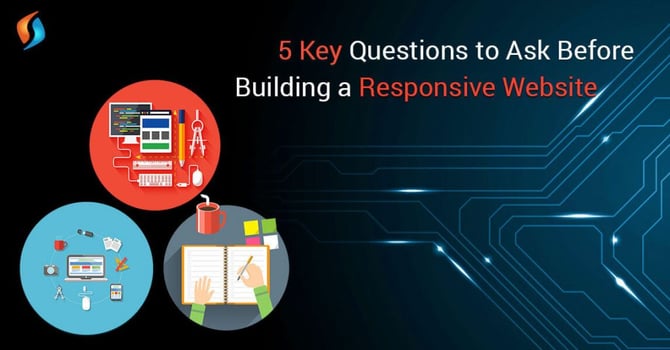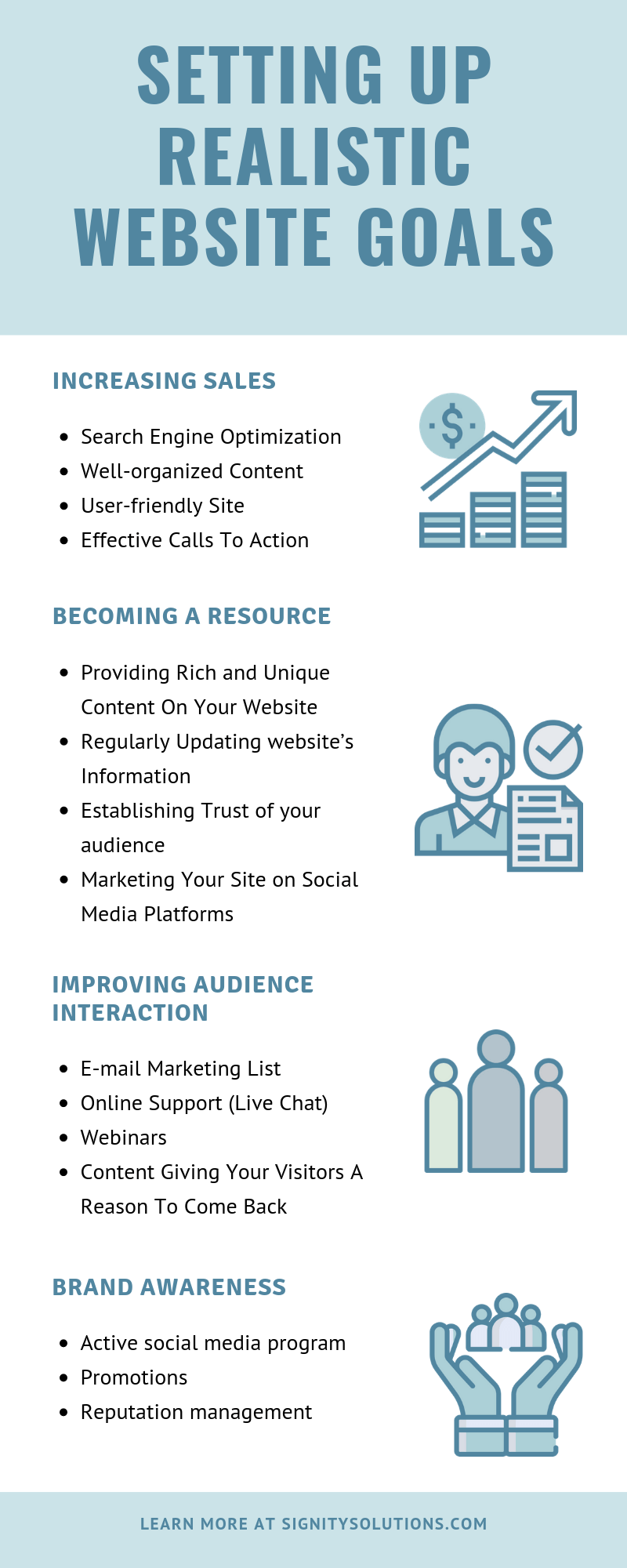5 Key Questions to Ask Before Building a Responsive Website

Don't worry if you haven't thought through your website development process. These 5 Fundamental Questions will help you correctly customize your website strategy, covering the aspects like sales conversion, target audience, brand awareness, and website maintenance.
But, first, let’s start by -
Why do I need to ask these questions?
If you still think customized website development is all meant for developers and designers. Then I must tell you, if you are leaving every aspect on the professionals then your website won't be able to highlight your “Unique Brand Story”.
Additionally, properly redefining your Website redesign or development requirement can help you avoid Scope Creep.
What is Scope Creep: These are changes, continuous or uncontrolled in a project's scope, at any point after the project is initialed.
Solution to Scope Creep:
By listing out a specific plan for your website you can easily make your project stay on course.
Certain new features might come up during the development phase, but the more you can define the requirements up-front the beneficial it will be for the project.
These questions will also make the entire process move along more quickly as your website designers and developers will know what you want and is the defined timeline. Make communication and deliverables clear between you and your website development company.
And the last reason is that you will be able to find the right website development service provider for the job.
While hiring an outsourcing team, you can easily ask these questions to them and if they state the answers that fit your needs.
Then, Voilà you have your Perfect Match!
Here are the Questions that you need to ask yourself before developing your website (P.S - if you want to nail it the very first time.)
Q1. What are the goals of your website?
Red Flag Warning: Do not set Generic Goals. Mostly, generic goals are too broad to be accomplished. Example a customized business website will likely to drive more sales. This leaves too much room for interpretation making your team work in different directions.
Checkout the below infographic mentioning different goals of the website and the ways to accomplish them.

Q2. Who is your target audience?
Once you have defined your goals, it is time to recognize your audiences.
What kind of people you need to reach to achieve your goals.
If you are not clear about your target audience then answer these questions to find out -
- Which audience is important to achieving the website objective?
- Ways in which you can segment your potential target audiences out further?
- Segment by demographics?
- Segment by psychographics?
- Segment by location?
- Segment by industry?
- What audiences do other stakeholders identify as important?
Now developing a list of audiences your company is already engaging with.
And next, expand your list by recognizing the kind of audience you want to reach by referring to the above questions.
Q3. How will I attract my audience?
There are quite a lot of things to do for attracting more visitors to your website, but there are some strategies that will always give you a high ROI.
You can bet the farm on these strategies:
a) Create Irresistible Content
Incredible website content, great services, and products can be your farm laying bets of all times.
Keep in mind: Everything that you do online needs to incredible.
b) Be Present everywhere
Take your show on the road - make catchy videos, podcasts, and represent them on different social media platforms.
c) Get your visitors subscribed
The best audience is a captive one. So, instead of your website relying on other sources of traffic, create your own traffic by getting your visitors to subscribed to your content and updates.
d) Beautify and make your website more functional
Design your website with the end goal in mind. If you’re missing out too many of your hard earned visitors before they read your incredible content. This could be because of your website design.
Tip: All these tips are important for every business, regardless of their industry.
These are some of the most effective and underused strategies for attracting your audience.
Q4. How often should you update your website
It is important to keep your website optimized for both visitors and search engines. When a website is regularly updated, Search engines recognizes this and treats it as relevant.
Regular website updations are one of the many things that Search engines considers for its rankings; therefore, a frequently updated site will have more success with organic search rankings than a site that has been left unattended to over the years to collect dust.
Types of updates that should be done
- SEO Standards
- Screen Resolution Norms
- Cascading Style Sheets
- Regular Content Updation
How often should you update your website ?
Deciding whether to update, redesign or re-engineer your website, should depend entirely on your business goals, requirements and economic considerations, rather than on some definitive or superficial time frame pulled out of thin air.
Q5. What should be included in the ongoing maintenance process?
Website development doesn’t end at the launching phase. However, website owners mostly ignore their website and allow it to fall out quickly. And with the website its performance will fall, leads will drop, and traffic will stumble.
There are certain aspects that you need to work while maintaining your website. To know these aspects you can read our blog, “6 Common Mistakes in Custom Web Development That Could Cost You Millions”
You can also check video for the same:
Summing it Up
A fancy website is not enough to achieve your marketing and sales goals. While your custom web developer can help you build a website that works, you need to start developing a list of your objectives and the strategic for your site.
By developing a realistic list of goals and measurable objectives, as well as always keeping your ideal visitor in mind, you’ll greatly increase your chances of online success.


%201-1.webp?width=148&height=74&name=our%20work%20(2)%201-1.webp)


.png?width=344&height=101&name=Mask%20group%20(5).png)














